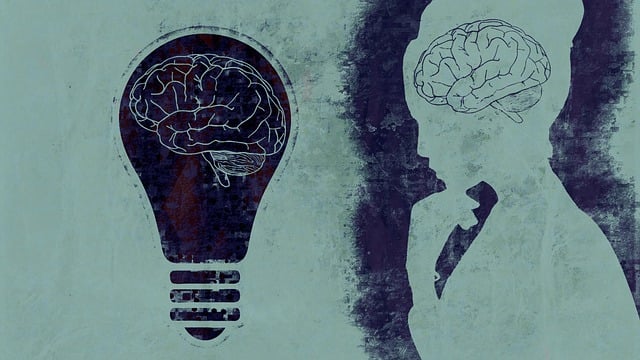Trauma and negative thought cycles commonly affect abuse survivors, hindering depression prevention and emotional well-being. Specialized therapy, such as mindfulness meditation and positive thinking exercises, is crucial for their recovery. These techniques empower survivors to detach from negative thoughts, foster self-compassion, heal emotional wounds, and build resilience against depression. Incorporating daily affirmations, gratitude, and cognitive reframing helps mend psyches, strengthen coping abilities, and promote self-esteem improvement, enabling survivors to reclaim their power and move forward with resilience. Empathy-focused strategies in therapy significantly improve outcomes, fostering emotional regulation and shifting narratives from victimhood to empowerment.
Trauma and negative thought patterns can deeply impact survivors, but embracing positive thinking offers a transformative path to healing and resilience. This article explores the power of positive thinking as a therapy for abuse survivors, delving into its impact, practical techniques, and inspiring case studies. By understanding the mechanisms behind negative thoughts, we equip ourselves with tools to cultivate a more optimistic mindset, fostering recovery and empowerment among those who have endured abuse.
- Understanding the Impact of Trauma and Negative Thought Patterns in Survivors
- The Power of Positive Thinking: A Tool for Healing and Resilience
- Practical Techniques for Implementing a Positive Thinking Exercise Program
- Case Studies: Success Stories of Positive Thinking as Therapy for Abuse Survivors
Understanding the Impact of Trauma and Negative Thought Patterns in Survivors

Trauma and negative thought patterns often go hand in hand, especially for survivors of abuse. The impact of trauma can manifest in various ways, affecting one’s ability to think positively and fostering a cycle of negativity. In many cases, individuals who have experienced abuse may struggle with depression prevention as their minds are plagued by intrusive thoughts and flashbacks that disrupt their peace and emotional well-being. This is where therapy for abuse survivors becomes crucial, offering safe spaces for them to process these experiences and challenge unhelpful thought patterns.
Mental health awareness plays a significant role in recognizing the need for specialized support. Through therapeutic interventions like mindfulness meditation, survivors can learn to detach from negative thoughts and cultivate a more positive mindset. By focusing on the present moment and developing self-compassion, individuals can begin to mend their emotional wounds, leading to improved mental health and overall resilience against depression prevention strategies.
The Power of Positive Thinking: A Tool for Healing and Resilience

Positive thinking exercises offer a powerful tool for healing and resilience, especially for those who have experienced trauma or abuse. This simple yet profound practice empowers individuals to reframe their perspectives and cultivate a more optimistic outlook on life. For abuse survivors, whose emotional landscapes might be marred by negative experiences, positive thinking becomes a form of therapy. It encourages the restoration of hope and self-belief, which are often shaken by past traumas. By consistently focusing on positive affirmations and grateful thoughts, individuals can begin to mend their psyches and strengthen their ability to cope with challenging situations.
Incorporating these exercises into daily routines facilitates emotional healing processes and promotes self-care practices. It helps survivors to dislodge negative thought patterns and replace them with healthier alternatives, fostering an environment conducive to self-esteem improvement. This transformative process enables individuals to reclaim their power and rebuild a sense of safety, enabling them to move forward with resilience and determination.
Practical Techniques for Implementing a Positive Thinking Exercise Program

Implementing a positive thinking exercise program involves practical techniques that can significantly enhance the lives of therapy for abuse survivors. One effective method is incorporating mindfulness practices, such as meditation and deep breathing exercises, into daily routines. These activities help individuals focus on the present moment, reducing reliance on past traumatic memories or future worries. By cultivating awareness of their thoughts and emotions without judgment, survivors can begin to rewire negative thought patterns, fostering a sense of calm and control over their mental state.
Additionally, engaging in cognitive reframing exercises allows participants to challenge and replace negative self-talk with more positive and realistic interpretations of situations. This involves identifying distorted thinking, like all-or-nothing thinking or jumping to conclusions, and then consciously restructuring these thoughts. For instance, instead of dwelling on a perceived failure, individuals can reframe it as a learning opportunity, acknowledging both strengths and areas for improvement. Such practices strengthen the mind over matter principles crucial for trauma support services, empowering survivors to take back control and cultivate a more optimistic outlook.
Case Studies: Success Stories of Positive Thinking as Therapy for Abuse Survivors

Many survivors of abuse have found solace and healing through the power of positive thinking exercises. Case studies reveal that incorporating empathy building strategies into therapy sessions can significantly benefit those who have experienced trauma. By focusing on self-esteem improvement, survivors learn to reframe their narratives, shifting from victimhood to empowerment. This process fosters emotional regulation, enabling them to manage and overcome the profound effects of abuse.
These success stories highlight how positive thinking therapies can transform lives. Through dedicated practices, survivors regain a sense of control, build resilience, and cultivate hope for the future. The journey is often challenging, but the outcomes speak for themselves: restored self-belief, improved mental health, and enhanced overall well-being.
Positive thinking exercises offer a transformative approach to healing and empowerment, especially for individuals recovering from trauma. By incorporating techniques that foster resilience and reframe negative thought patterns, survivors can navigate their journeys with increased coping mechanisms and improved well-being. The case studies presented highlight the effectiveness of these practices in enhancing the lives of abuse survivors, providing a compelling argument for integrating positive thinking as a valuable tool within therapy sessions.














